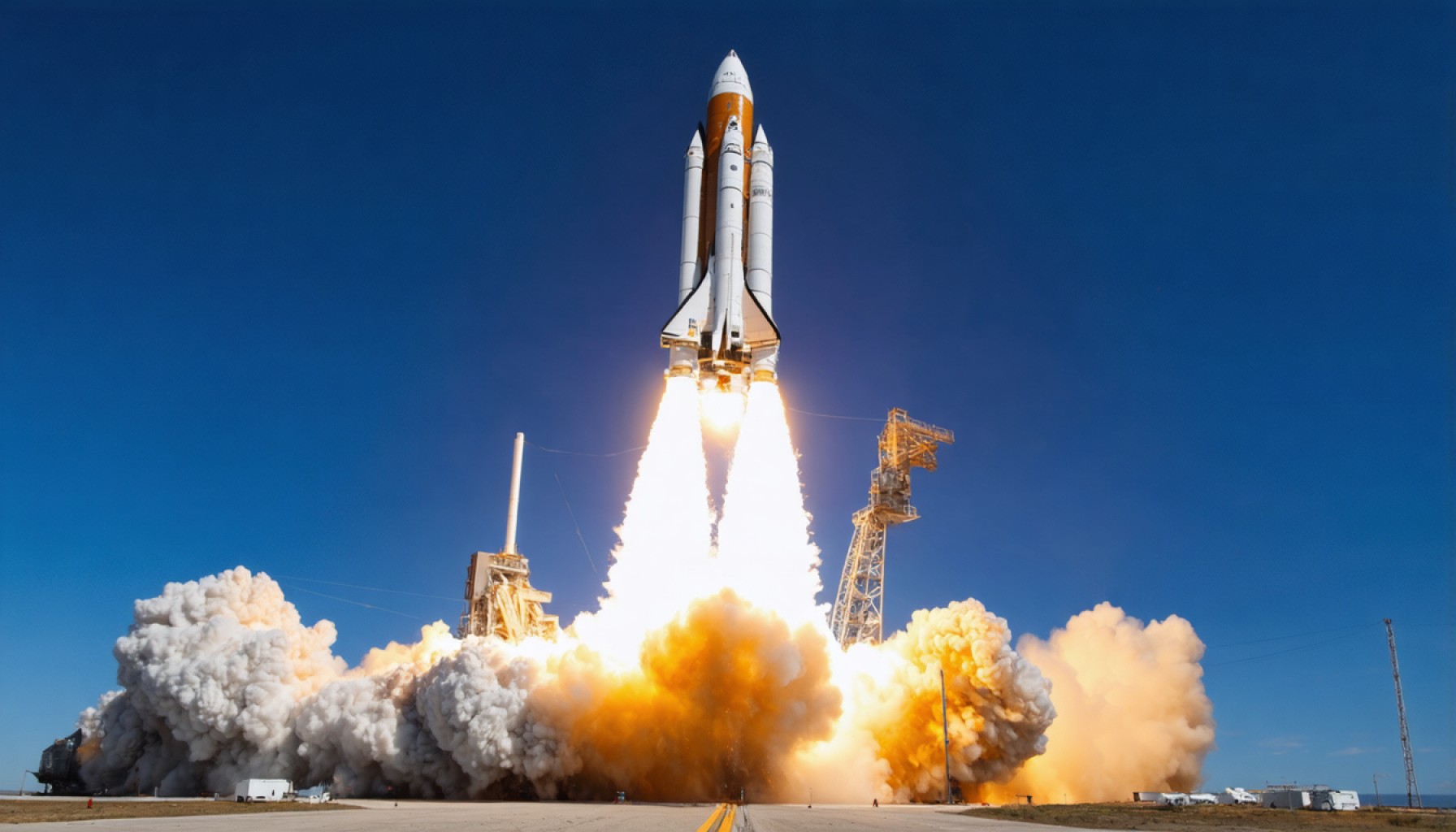- A bright launch from Norway’s Andøya Spaceport marked Europe’s ambitions in space, despite an explosive end.
- Isar Aerospace, a German start-up, led this mission, aiming to establish Europe’s presence in the space sector.
- The Spectrum rocket, Europe’s first private orbital launch, encountered failure moments after liftoff.
- Technical issues emerged seconds post-launch as smoke signaled impending disaster.
- Isar Aerospace’s Daniel Metzler noted that even failures provide valuable data for future missions.
- The mission underscores the challenges of space exploration but also Europe’s determination and resilience.
- Europe’s pursuit of a robust space economy continues, driven by the challenges and allure of space.
A bright streak blazed in the cold Arctic sky over Norway, heralding a new era of ambition from Europe’s heart. But mere moments after liftoff, the vision shattered — quite literally — as Isar Aerospace’s Spectrum rocket plummeted back to Earth, engulfed in a shroud of smoke and fire.
This dramatic tale unfolded at Norway’s Andøya Spaceport, a site embraced by the icy landscapes and daring dreams of space pioneers. For Isar Aerospace, a trailblazing German start-up, the launch was not just a technical endeavor but a bold statement of Europe’s aspiration to carve its niche in the celestial expanse dominated heavily by giants like SpaceX.
What led to the unfortunate demise? Seconds post-takeoff, puffs of smoke curled ominously from Spectrum’s sleek sides, signaling the prelude to disaster. The rocket’s explosive return was a harsh reminder of the unforgiving nature of space exploration — a venture not for the faint-hearted but reserved for those unafraid of failure.
Despite the setback, this mission was not devoid of triumph. Daniel Metzler, the vociferous voice at the helm of Isar Aerospace, had pragmatically tempered expectations. Any flight time would yield invaluable data, he asserted, and indeed, even in catastrophe, lessons are etched. Isar’s composite Spectrum rocket, standing at an imposing 28 meters, though devoid of payload for this trial, carried the weight of Europe’s space ambitions.
This attempt marked a critical venture: it was the first orbital rocket launch propelled by private European hands. Prior endeavors, like Virgin Orbit’s ill-fated 2023 flight, which fizzled over England, underscore the challenges inherent in reaching for the stars.
The collective European aspiration to establish a robust space economy is not dampened by fiery failures. Each trial fortifies future triumphs, building on a foundation of determination and innovation. Indeed, to venture into space is to accept risk, but also to harness it, propelling humanity toward untapped frontiers.
As Europe rises from the ashes of this setback, the quest remains: a pursuit steered by tenacity and fueled by the ceaseless allure of the cosmos. In every misstep, there is progress — a narrative threaded with resolve. The key takeaway is compelling: success in space requires not only ingenuity and precision but a willingness to rise stronger from the debris of failure.
Europe’s Space Ambitions: Rising from the Ashes of Setback
Overview of Isar Aerospace and the New Space Race
Isar Aerospace, a German start-up, was thrust into the spotlight with its recent attempt to launch the Spectrum rocket. Despite the unsuccessful mission, the event underlines a pivotal moment in European space exploration. Here are some key insights and additional facts surrounding this ambitious venture:
Insights & Predictions for European Space Industry
1. Resilience and Learning from Failures:
The mission failure offered significant learning opportunities. Daniel Metzler, Isar Aerospace’s CEO, emphasized that any flight time is crucial for gathering data, which will be instrumental in refining future launches.
2. The Rise of Private Space Ventures:
This launch was Europe’s first attempt at sending an orbital rocket into space by a private company. Unlike previous government-dominated initiatives, this signals the maturation of Europe’s private space sector.
3. Comparisons with Global Competitors:
Europe is actively seeking its place in a market dominated by SpaceX, Blue Origin, and Chinese companies. While these competitors have a head start, Europe’s emphasis on innovation and sustainability positions it uniquely.
Challenges and Limitations
– Technical Hurdles: The technical challenges faced by Isar Aerospace — such as the puffs of smoke leading to the launch’s failure — highlight the complex nature of rocket science. Thorough analysis and testing are crucial to overcoming these obstacles.
– Regulatory and Funding Issues: European space startups often face stricter regulatory environments and less financial backing compared to their American counterparts.
How-To Steps & Life Hacks for Aspiring Space Companies
1. Iterative Testing and Data Collection: Adopt a piecemeal approach to testing. Each failure should be analyzed to prevent recurrence and to learn valuable lessons.
2. Collaboration with Academia and Governments: Strengthening ties with universities and government agencies can provide funding opportunities, technical expertise, and vital resources.
3. Focus on Niche Markets: Rather than competing head-on with giants like SpaceX, European companies can focus on specialized markets, such as sustainable satellite deployment or manufacturing in low Earth orbit.
Market Forecasts & Industry Trends
– Growth in the Small Satellite Launch Market: As demand for satellite launches grows, Europe is likely to see increased competition and opportunity in providing accessible access to space for small to medium satellites.
– Investments in Eco-Friendly Technologies: There’s a growing emphasis on developing eco-friendly technologies, such as reusable rockets and green propulsion systems, giving Europe a potential edge in sustainable space exploration.
Actionable Recommendations
– Invest in R&D: Allocate significant resources to research and development to stay at the forefront of technological advancements.
– Build Robust Networks: Engage with international partners to share expertise and investment burdens.
– Promote STEM Education: Encourage and invest in STEM education to build a robust talent pipeline for the future.
Related Links
For more information on space innovations and companies:
– SpaceX
– Blue Origin
– European Space Agency
In conclusion, while the initial launch of Isar Aerospace’s Spectrum rocket may not have succeeded, the endeavor marks a significant step forward for European space exploration. Learning from failures and adopting a strategic, collaborative approach will be key to Europe’s success in the burgeoning space economy.







